Azerbaijan and United States on converging path Renewed optimism in bilateral relations
In today’s global landscape, one of the widely discussed topics across all geographic regions is the nature of various countries’ relations with the administration of Donald Trump. It cannot be denied that leaders of many states—including those who consider themselves, so to speak, the “top of the top”—have failed to establish balanced relations with the American president. Moreover, the issue here is far from being about policies such as customs tariffs, as some interested parties might want to suggest. Rather, it is more about predictability and sincerity in relations.
In this context, Azerbaijani-American relations come under particular scrutiny. Any interested observer can quite clearly form their own opinion on the reasons behind this by analysing the statements made on the subject by Azerbaijan’s President Ilham Aliyev, both before Trump’s return to the Oval Office and after his victory in the presidential election.
Against this backdrop, even without the use of a magnifying glass, one can clearly see the clarity, concreteness, and consistent stance of the head of the Azerbaijani state in this regard. At the same time, the development of Azerbaijani-American relations can also be clearly illuminated, perhaps surprisingly to some, through mutual letters or telephone conversations between the leaders of the two countries.
Let us try to explore this nuance in more detail.

The year 2024. The 2nd Shusha Global Media Forum. Ilham Aliyev expressed full agreement with Donald Trump’s assessment of The Washington Post and The New York Times as sources of fake news. It is important to note that this statement was made during the U.S. presidential race. Against this backdrop, the head of state emphasised that the fate of many peoples and countries will largely depend on the decisions made by the U.S. president.
President Aliyev highlighted a positive aspect of Trump’s first term — the absence of wars, which commands respect, as well as his clear position on the issue of traditional values.
The vast majority of the Azerbaijani people actively embrace this perspective in practice. In unison, Ilham Aliyev noted the fruitful development of bilateral relations during Trump’s first presidency, in contrast to Joseph Biden’s administration, when, following the conclusion of the American mission in Afghanistan — a mission in which Azerbaijan played a very active role — the Democrats in power imposed sanctions against Baku under Section 907 of the Freedom Support Act without any logic or explanation.
According to President Aliyev, this was “how they repaid us for being a good partner and friend,” a response to “restoring our sovereignty and territorial integrity.”
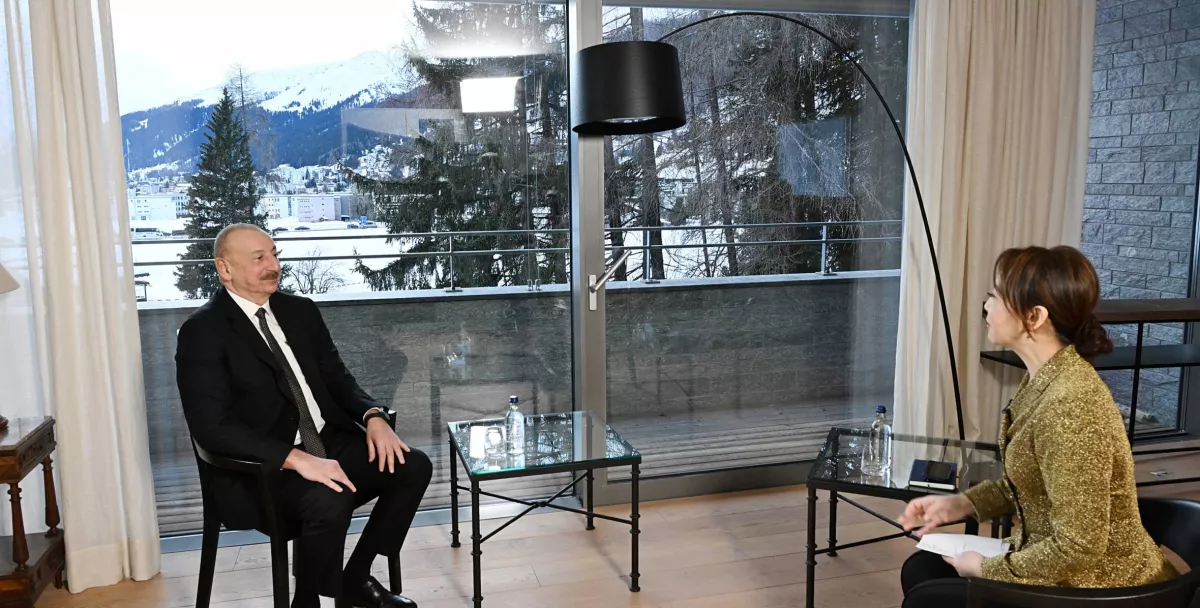
Year 2025. January. In an interview with the Chinese TV channel CGTN during the World Economic Forum in Davos, President Ilham Aliyev responded to a correspondent’s question about the concerns many have regarding certain actions of Donald Trump, who had just won the presidential election. The head of state emphasised that unlike European leaders—who have been uncertain about Trump in recent years—Baku has no such uncertainty. This is because, against the backdrop of four lost years in Azerbaijani-American relations during Biden’s presidency, the previous experience of working with President Trump was very positive.
At the same time, the president touched upon the crucial geopolitical context, stating that a consensus between China and the United States—whom he called the two leading world powers—“will benefit all countries.”
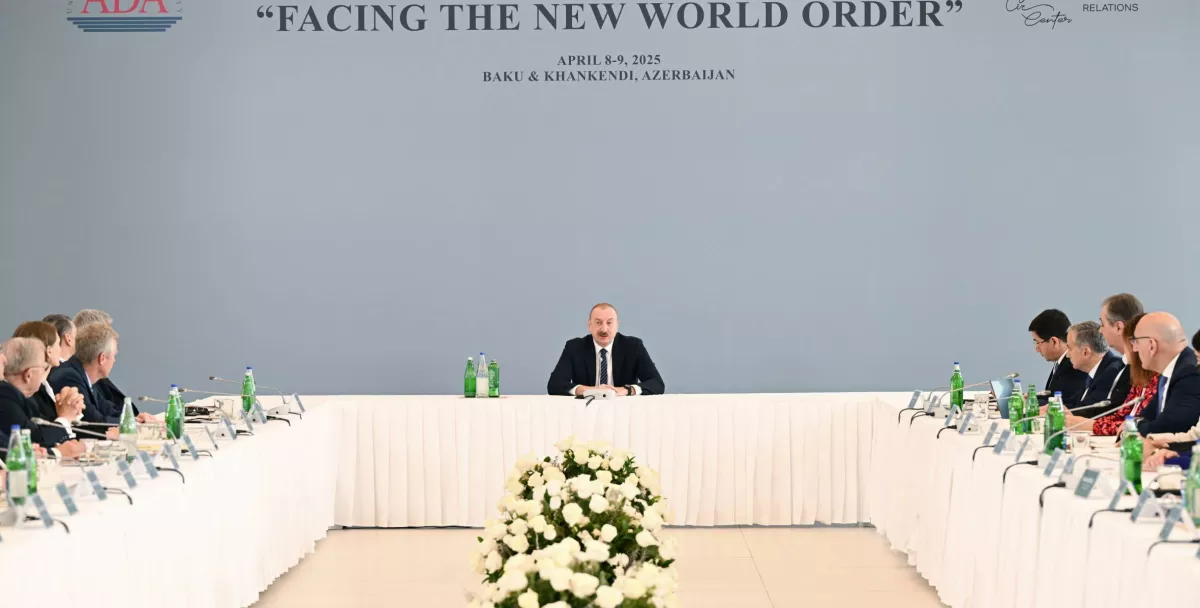
Year 2025. April. At the international forum at ADA University, President Ilham Aliyev, speaking positively about the contacts between members of the Trump administration and the Azerbaijani team, described the programme of future actions as productive. Fortunately, Trump’s presidency will be focused on the national interests of Americans, highlighting opportunities “to strengthen our partnership,” particularly because Azerbaijan is the leading country in the South Caucasus. Therefore, “we are waiting for the time when we will engage or maybe re-engage in a very strong, predictable, long-term strategic relationship with the new administration.”
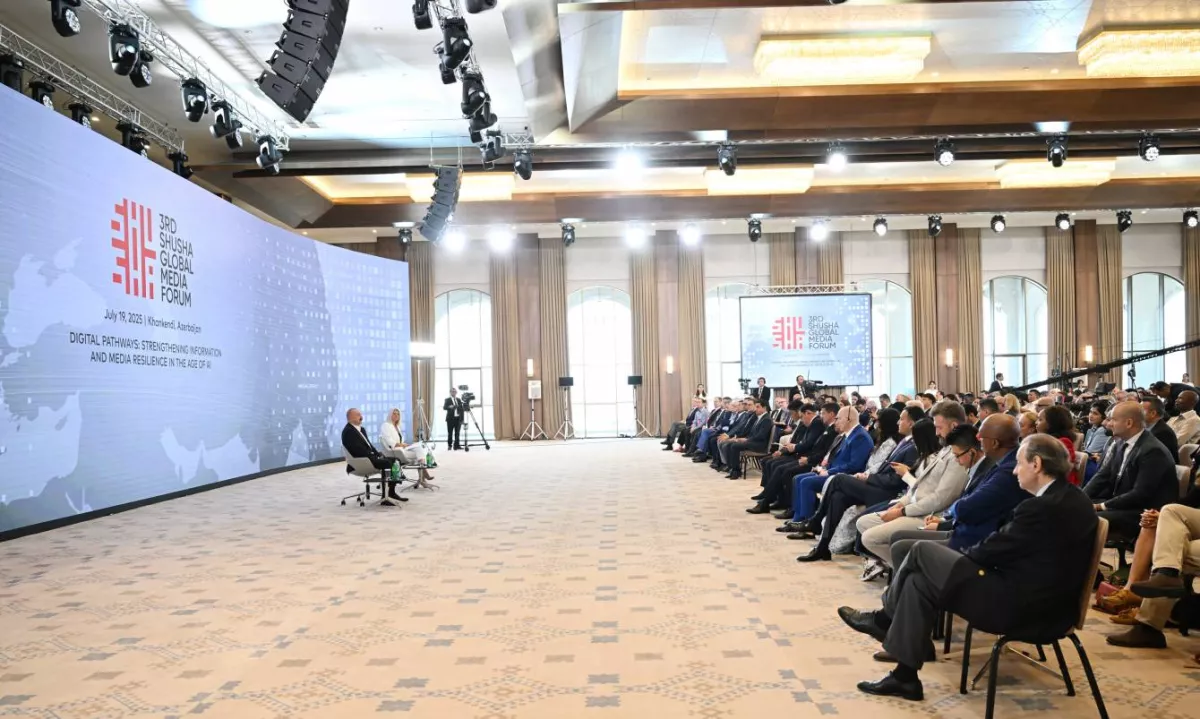
Year 2025. July. The 3rd Shusha Global Media Forum. President Ilham Aliyev noted that Trump, similarly to Baku’s position, distinguishes fundamental values—including family values—and expressed gratitude to him “for his desire to help Azerbaijan and Armenia to come to an agreement in the end.”
The head of state spoke about the significant potential for strong partnership relations with the United States, especially in the context of Trump’s active involvement in the South Caucasus process, and concluded that “we will have more good news in the future.”
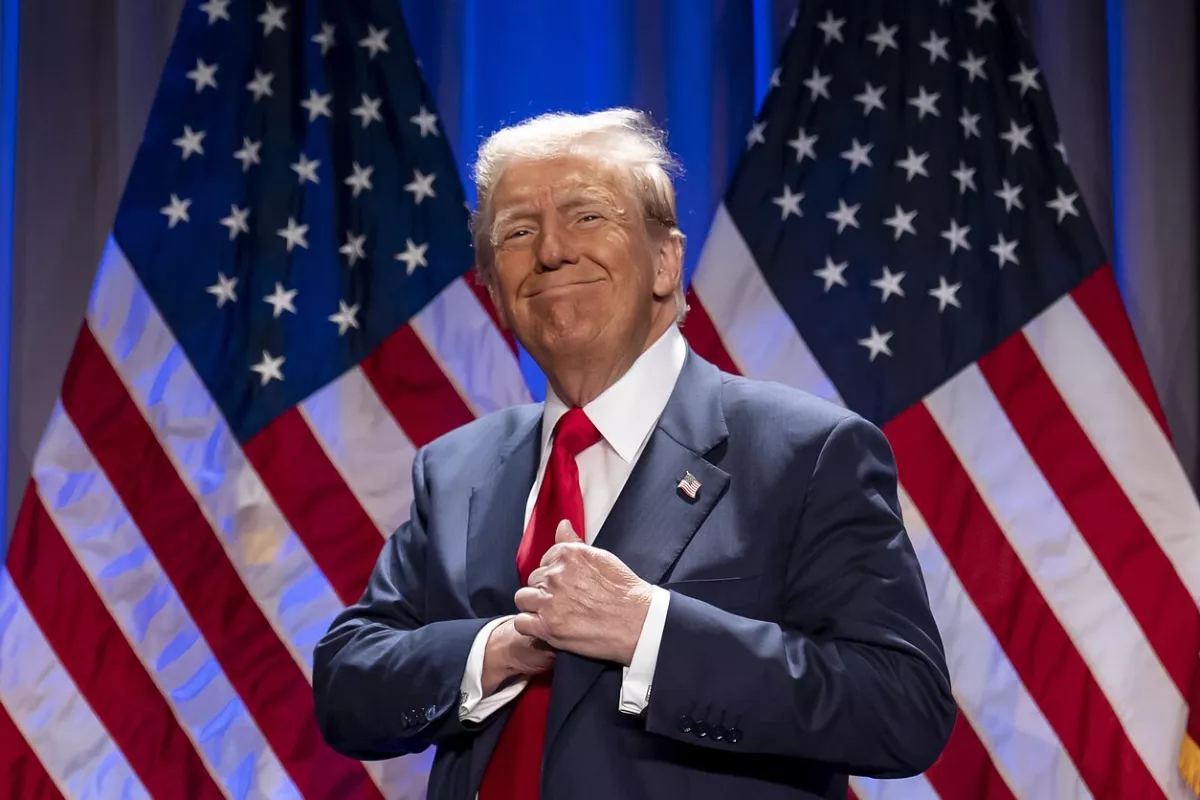
It is quite telling that on his page on the social network Truth Social, the American leader referred to excerpts from the president’s speech in Khankendi, which requires no further comment.
Now it is time to draw attention to the substantive content of the mutual congratulatory telegrams and telephone conversations between the leaders of the two countries.
In November 2024, in his congratulatory message to Trump on his presidential election victory, the head of Azerbaijan emphasised the special importance Baku places on the comprehensive development of bilateral relations. Fortunately, during Trump’s first term, “our partnership based on mutual trust and support, including our interaction in several important areas, and particularly, fighting global challenges and terrorism, fostering international peace and security, and ensuring Europe’s energy security, is characterized by dynamic and ever increasing development.”
Highlighting the constant support from Trump for Azerbaijan’s energy strategy, Ilham Aliyev voiced a determination to deepen the partnership in all spheres, including political, economic, and energy sectors, based on the national interests of both countries, including national security interests.
In a subsequent telephone call, Trump expressed deep appreciation to President Ilham Aliyev for his congratulations and stressed the importance of joint efforts aimed at developing cooperation between the two countries.
After Trump’s inauguration, Ilham Aliyev, underscoring the Washington administration’s activity in promoting global peace and strengthening international security, highlighted the presence of mutual trust between Baku and Washington, which will serve to give new meaning to the relations.
An important aspect in this regard is that President Ilham Aliyev has also explained this special format of Azerbaijani-American understanding to the European community.
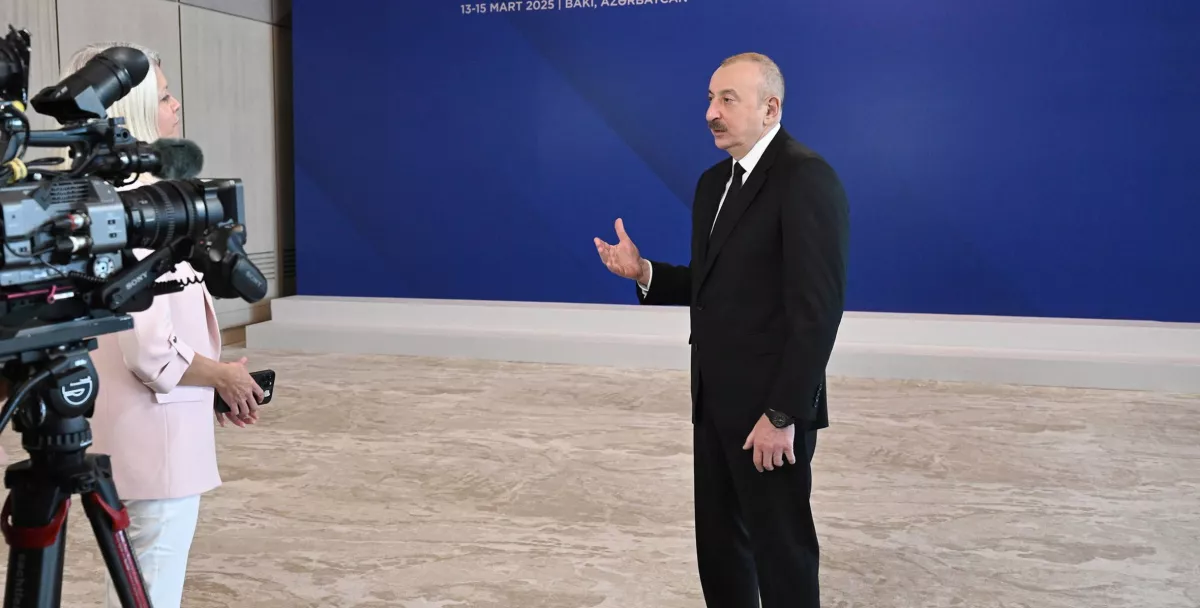
In a March interview with the television channel Euronews, he acknowledged disappointment over the deterioration of relations between the two countries due to the “unjust approach towards our national interests” by the Biden administration, and expressed significant enthusiasm regarding Trump’s presidency in terms of restoring strong partnership relations with the United States.
In turn, in his congratulatory message to Ilham Aliyev and the entire Azerbaijani people on the Novruz holiday, Trump expressed hope to take steps towards great achievements in the coming years and praised Baku’s stance on establishing peace in the region, placing special emphasis on the mutual support for sovereignty, independence, and territorial integrity.
Similarly, in a congratulatory message on Azerbaijan’s Independence Day, Trump acknowledged the White House’s high appreciation of the mutual partnership in combating terrorism, promoting energy security, and working towards regional peace, noting that Washington continues to support a strong peace between Azerbaijan and Armenia.
Surely, even these statements are sufficient to understand how much Trump and his team value Baku’s position in virtually all areas, and not only in terms of bilateral cooperation but also on the global stage. At the same time, President Ilham Aliyev, in his July congratulatory message to Trump on the occasion of the U.S. Independence Day, emphasised the global context of this direction, based on emerging opportunities to give a new quality to friendly ties and partnership through the development of mutually beneficial cooperation not only in trade, economic, transport, and energy sectors, but also in aviation, high technology, and investment, demonstrating significant potential for mutual understanding.
For many, the nuances noted above may seem unexpected, especially since today we see various external political forces attempting to portray Trump in a one-sided way—as if his actions are driven solely by emotions and an “explosive” temperament.
However, it is evident that his actions are guided by logic, pragmatism, political will, and a determination to strengthen the national interests of the country he leads. Moreover, he clearly values loyalty to one’s word and the predictability of his true geopolitical partners and friends.
In this regard, the position of official Baku stands out particularly, both domestically and internationally. The basis of its actions is consistency, transparency, and predictability. This approach from Azerbaijan rests on a clear strategic paradigm, visible even to the country’s adversaries. Against the backdrop of constant vacillations and fluctuations of states that like to position themselves as global leaders in almost every sphere, President Ilham Aliyev conducts his policy skillfully and clearly, defending his country’s interests while relying on all norms and principles of international law. This is especially evident in the context of Azerbaijani-American relations.
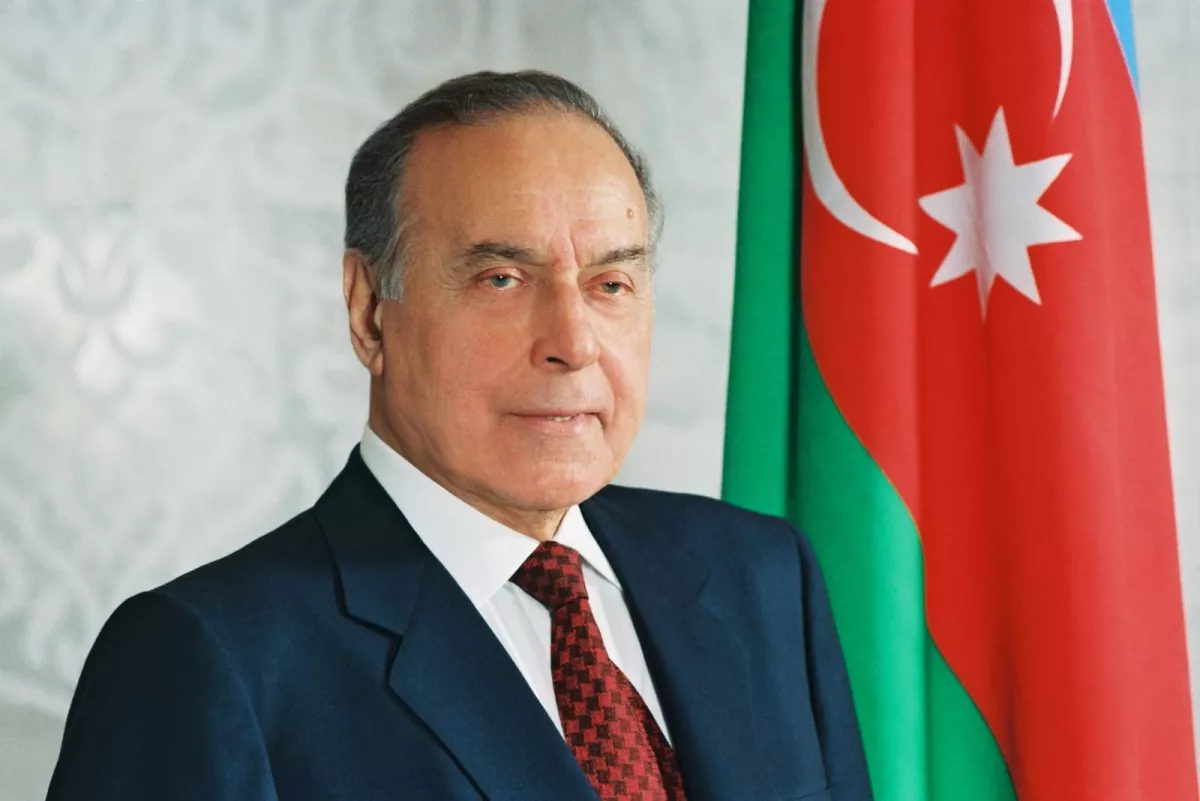
This perspective once again demonstrates how the foundation of multifaceted foreign policy laid by the National Leader Heydar Aliyev continues to serve as an example for many countries. As a bridge at the crossroads of West and East, North and South, Azerbaijan brilliantly leverages its geographic position without causing harm to third countries. For this reason, nothing prevents Baku from building relations in various directions—whether it is strengthening the unified family within the Organization of Turkic States, maintaining fraternal ties with Islamic countries, fostering a unique mutual understanding with China, largely ensuring Europe’s energy security, defending states facing neocolonialism, engaging with Africa, partnering with the United States, and more.
At the same time, Baku acts both bilaterally and through active participation in international organisations. Therefore, the high-quality format of Azerbaijani-American partnership, along with its prospects for further development, should come as no surprise to anyone.








